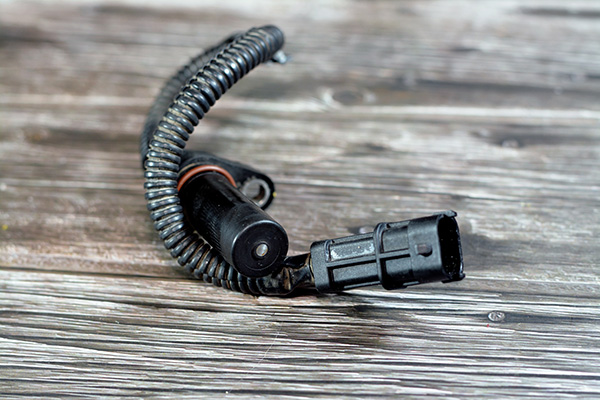
Your engine might seem like a mechanical beast, but at its core, it runs on precise information. One of the most important sources of that information is the crankshaft speed sensor. Also called a crankshaft position sensor, this small but powerful component tells your vehicle’s computer when and how fast the engine is turning.
If that sounds simple, it’s not. Without accurate data from the crankshaft speed sensor, your engine won’t run properly—if it runs at all. Here’s why this sensor plays such a critical role under the hood and what happens when it starts to fail.
What Does a Crankshaft Speed Sensor Do
The crankshaft is the central rotating shaft in your engine. It converts the up-and-down motion of the pistons into the rotational force that moves your car forward. The crankshaft speed sensor keeps track of that rotation by measuring the position and speed (RPM) of the crankshaft in real-time.
This information is sent directly to the engine control unit (ECU), which uses it to:
- Determine when to fire the spark plugs
- Control the timing of fuel injection
- Monitor engine speed and performance
- Manage emissions and idle control
In other words, the crankshaft sensor helps your car's brain understand what's going on inside the engine so it can make precise, split-second decisions. Without that input, the ECU is essentially flying blind.
How It Works in Modern Engines
The crankshaft sensor works with a toothed wheel (reluctor ring) attached to the crankshaft. As the crankshaft spins, the teeth pass by the sensor, which detects each one and measures the intervals. That data allows the computer to calculate engine RPM and crankshaft position down to the millisecond.
The sensor itself might use magnetic, Hall effect, or inductive technology, depending on your car's make and model. No matter the type, the role is the same: accurate, continuous monitoring of crankshaft rotation.
What Happens When the Sensor Fails
When a crankshaft speed sensor goes bad, things get weird fast. The most common symptoms include:
- Engine stalling or misfiring
- Hard starting or no start at all
- Check engine light
- Rough idling or hesitation
- Poor fuel economy
Since the engine depends on real-time input from the sensor for spark timing and fuel delivery, even a small glitch can throw the whole system off. In some cases, the engine will crank but not start. In others, it may run but with severe hesitation or random stalling while driving.
If your car is acting up with no clear cause, a faulty crankshaft sensor is worth investigating—especially if there’s no obvious mechanical issue.
Diagnosing a Faulty Crankshaft Sensor
These sensors don’t always fail completely at first. Many will work intermittently, leading to issues that are hard to track down. That’s why diagnostics are important. A technician can:
If the sensor is sending erratic signals—or no signal at all—it will need to be replaced. Fortunately, most crankshaft sensors are relatively inexpensive parts. The labor varies depending on where it’s located (some are easy to access, others are buried behind engine components).
Why You Shouldn’t Ignore It
Even if your car seems to “work around” a bad sensor at first, it won’t last. The longer you wait, the more stress you put on other components—like the ignition system and fuel injectors—which are trying to compensate for inaccurate timing. And if the sensor fails completely, the engine may stop running altogether, leaving you stuck.
Fixing a faulty crankshaft speed sensor early is one of the best ways to avoid bigger problems down the road.
Small World Auto Repair – Engine Diagnostics You Can Trust in Eugene, OR
If your car is stalling, struggling to start, or showing engine warning lights, let Small World Auto Repair in Eugene, OR, take a look. We specialize in engine diagnostics and will test your crankshaft speed sensor along with related components to pinpoint the issue quickly.